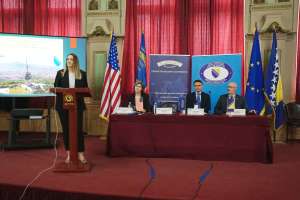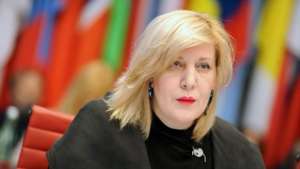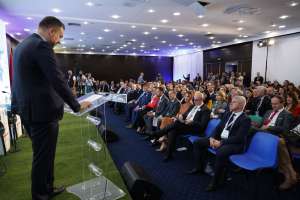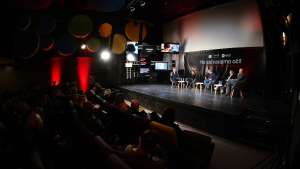SARAJEVO, January 29 (FENA) - For the European Union, reconciliation in the Western Balkans region means confronting the legacy of the past in the context of the rule of law, human rights and equal treatment for all, said David Hudson of the European Commission’s Directorate-General for Neighborhood and Enlargement Negotiations at the closing of the 11th Forum for Transitional Justice in Post-Yugoslav Countries, today in Sarajevo.
He added that progress in the field of reconciliation was visible among ordinary people, as today's forum has brought together people from all the countries of the region involved in the conflict – both perpetrators and survivors and demobilized fighters, who sat together and discussed their common interests so that each of them could reach their personal peace.
“The Forum has come to an important time because the EU Strategy for the Western Balkans will be published next week and its integral part will be reconciliation, but there are other activities coming to advance the reconciliation process in order to improve the position of victims,” said Mr. Hudson.
Coordinator of the Regional commission for the establishment of facts about war crimes and other serious violations of human rights (RECOM), Nataša Kandić, said that EU representatives might see that civil society in the region is following EU steps and that the new Strategy for the Western Balkans will be specifically addressed here.
“We have succeeded in coming to the readiness of some regional political leaders to recognize the importance of the issue of naming victims, but the EU must encourage them to continue working on this,” Ms. Kandić said.
She emphasized that, since both Croatia and Slovenia, which today belong to the EU, used to be part of former Yugoslavia, we cannot pretend that some of the victims no longer belong to the post-Yugoslav countries and that they are now victims from the EU, because the attitude toward the victims and the common past has to include a lot of dignity.
Croatian political analyst and human rights activist Žarko Puhovski underlined that in the process that is taking place in the societies, which should at least halfway be subsumed under the concept of reconciliation, there are no major steps forward and that there are plenty of elements that pull us back.
“This is not just a matter for political leadership, although their responsibility is great, but it concerns the fact that among a significant part of politically active citizens exists an atmosphere of attempting to forget about the past and crimes or trying to attribute them to the “other side” alone,” Mr. Puhovski explained.
He added that the Croatian political leadership does not want to cooperate on these issues because they consider it a kind of rebuilding of Yugoslavia or equally sharing the blame, and this is because the proportion of politically active, right-nationalist-oriented people in Croatia is increasing, which matches the same tendencies in the EU.
(FENA)
Notice: Trying to access array offset on value of type bool in /var/www/vhosts/fena.ba/httpdocs/post-new.php on line 215












